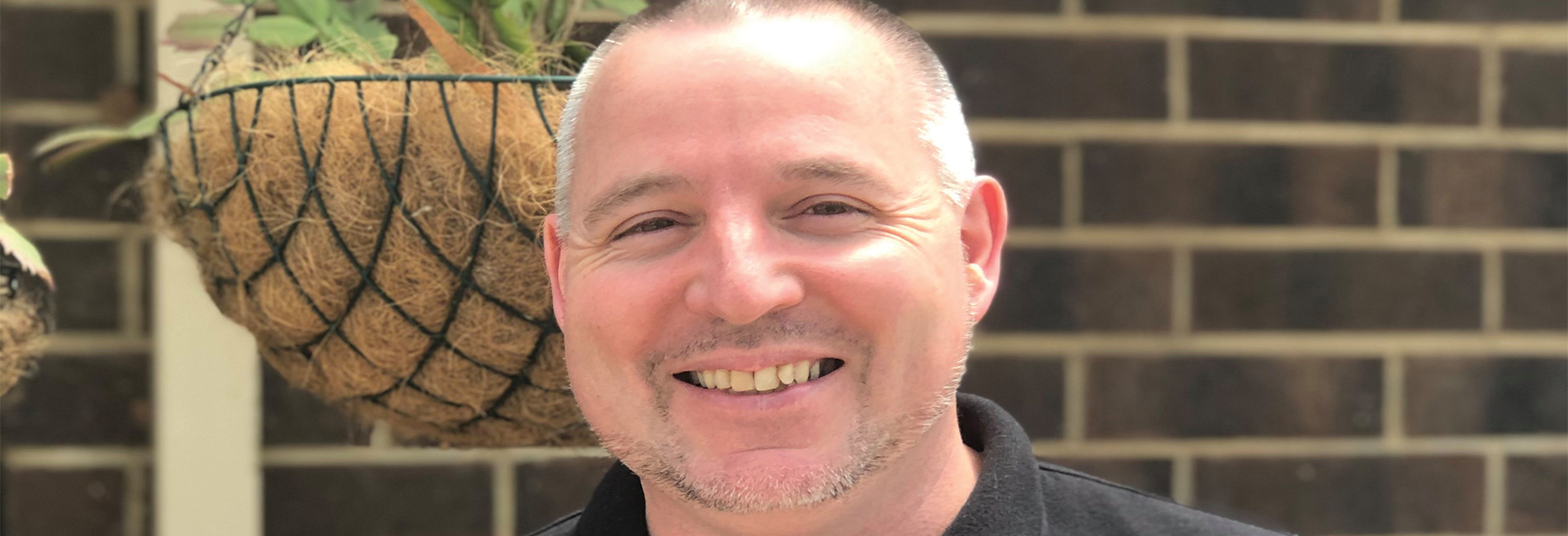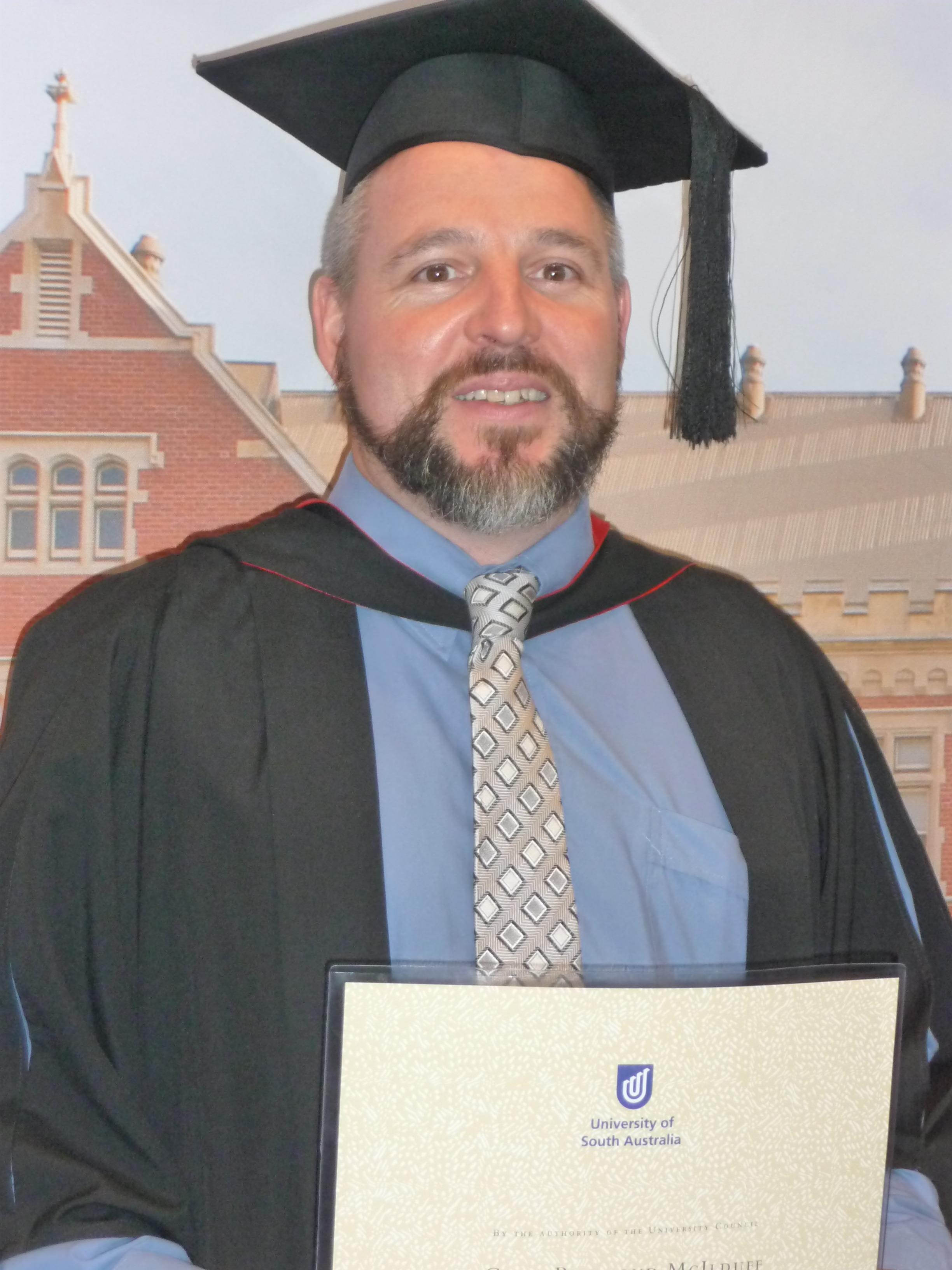28 January 2020
Article from January edition of INPractice

Being laid off as a factory worker hit hard for Colm McIlduff who was fast approaching his forties and had been making tyres for nearly two decades.
“I was caught up in an era of change for the local car manufacturing industry and was made redundant when a major producer closed its tyre plant at Salisbury South,” Colm says.
“The factory had been operating for more than 40 years but could no longer compete globally. Six hundred of us lost our jobs,” he says.
“With no other skills behind me apart from being a storeman and truck driver, I found it really hard to get another job. I’d send out applications daily and receive rejection after rejection.”
As the sole income earner in the family, Colm needed to support his three children at high school and his wife.
“The bills were piling up and I had this overwhelming feeling I was letting down the people I loved.”
Not long after, Colm was diagnosed with depression.
“Being made redundant and not being able to get work took me to a dark place where I felt I was no longer in check with my own emotions.
He sought professional help over five months and “the dark clouds began to lift.”
“My wife then encouraged me to explore university study, so I took the entrance exam, nominated a number of potential courses, and ended up receiving an offer to study nursing.”
“Nursing wasn’t a field I ever thought I would actively pursue, but the minute I began my studies, I realised how much the profession had to offer.”
While studying full-time for his Bachelor degree, bad news again struck Colm’s family—his teenage daughter was diagnosed with sarcoma.
“It was a huge shock and it was heartbreaking,” he says, “But it was the driver for me to show my daughter I could secure a new career by studying hard and obtaining my nursing degree.”
With his wife and children by his side, Colm graduated in 2015. He then went on to obtain post-graduate qualifications in mental health nursing and soon gained full-time employment at an Adelaide public hospital.
Tragically, Colm’s daughter lost her five-year battle with the rare form of cancer. She was just 20 years old.
“She put up an incredibly brave fight and it meant the world to us that we were all together as a family when I graduated—she was so proud of me becoming a nurse.
He says his experiences with loss and heartbreak have better equipped him in his professional career.
“I feel I can really connect with patients by drawing from my personal experiences to comfort and help them by promoting emotional health as well as physical and psychological well-being.”
“One case particularly stands out for me when a young man in his 20s was admitted to the mental health ward after the death of his dad—he was overcome with grief.”
“He felt he was letting his family and friends down because he wasn’t being strong and manly enough, and we helped him recognise he didn’t need to be.”
“We helped him to realise it’s okay to cry and grieve. And that it’s alright to laugh and be happy in his own life without feeling guilty about it.”
Colm says his specialised area of practice is rewarding on so many levels.
“We work with doctors and social workers to help support patients experiencing from conditions such as anxiety, depression, psychosis, mood disorders, schizophrenia, alcohol or drug abuse.”
“We also provide a real sense of fun to help people engage with others again, which is really important. Playing pool, chess, table tennis, musical instruments and even making origami flowers are fantastic activities that can help improve mental health.”
While Colm admits the work can be challenging, he would not have it any other way.
“The work can be emotionally demanding but knowing you are making a real difference to someone else’s life every shift is an incredible feeling. You’re helping other people get their lives back on track.”
“As with any other job, it’s important to also look after your own mental health needs such as ensuring you’re eating well, regularly exercising and getting plenty of sleep.”
“It’s also important to regularly communicate with your colleagues and ensure you care for them in much the same way you would for a client.”
Now undertaking tertiary studies in psychology, Colm’s passion for mental health continues to grow.
“I want to learn how to better engage with people, whether that is the people in my care or the colleagues at my side.”
With a critical shortage of nurses in mental health, there is a variety of career options in the private and public sectors including hospital emergency departments, acute inpatient units, community health services, residential and non-residential rehabilitation programs and the justice system.
“I’d never considered a career as a Mental Health Nurse, but it’s the best job I’ve ever had!”
 Colm graduated with a Bachelor of Nursing in 2015.
Colm graduated with a Bachelor of Nursing in 2015.
PURSUE A CAREER IN MENTAL HEALTH NURSING
ANMF (SA Branch) has teamed up with Flinders University to make it even easier for Registered Nurses to transition into the specialist and rewarding area of mental health nursing without going through the SATAC entry process.
You can enter post-graduate studies at Flinders University from a related Continuing Professional Development (CPD) course at our Australian Nursing and Midwifery Education Centre (ANMEC), recently named 2019 SA Training Provider of the Year.
To find out more details, visit anmfsa.org.au/education or contact 8334 1900.
If you need support, contact Lifeline on 13 11 14.
Click here to read the January 2020 edition of INPractice.